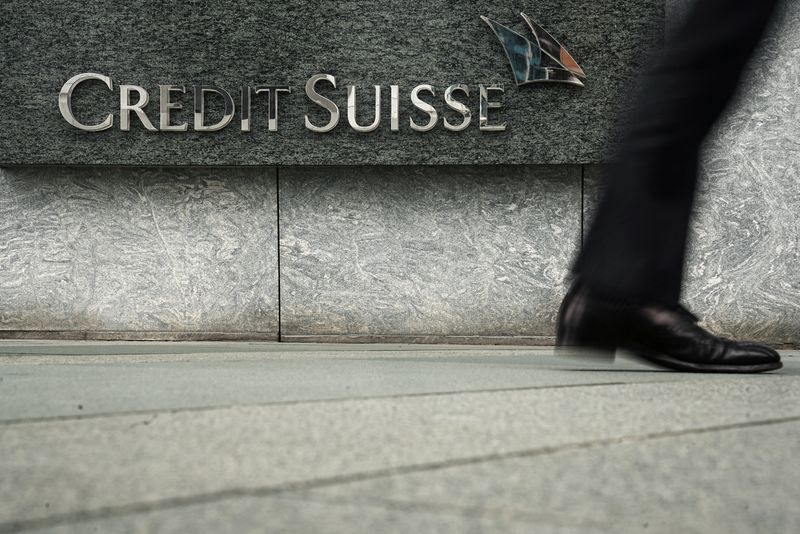By Marc Jones
LONDON (Reuters) - This month's U.S. banking system turmoil and renewed recession worries have left global investor confidence at one of the lowest levels in the last 20 years, and that does not even account for this week's demise of Credit Suisse.
A monthly survey carried out by investment bank BofA following the collapses of Silicon Valley Bank and Signature Bank (NASDAQ:SBNY), but before Sunday's Credit Suisse takeover, showed the perception of risk levels worsening dramatically.
BofA's self-compiled "Financial Market Risk Indicator" of investor worry levels jumped to 7.7, leaving it just off the extreme highs of last year amid the Ukraine war and above both its global financial crisis and COVID outbreak peaks.
European fund managers are particularly gloomy.
Even though their questionnaire closed before the weekend woes at Credit Suisse, nearly a third of them had said "a systemic credit event" was now the biggest risk for markets.
That was up from only 8% in the February survey and knocked inflation off the top spot for the first time in nine months. With the Silicon Valley Bank turmoil fresh in minds, the U.S. "shadow banking" sector was cited as the most likely source of danger.
Other surveys told a similar story.
In Germany, a monthly poll from the ZEW economic research institute showed a large fall in investor sentiment there.
"The international financial markets are under strong pressure," and the high level of uncertainty is reflected in the economic expectations, ZEW President Achim Wambach said.
The collapse of U.S. mid-sized lenders Silicon Valley Bank (SVB) and Signature Bank, followed by the demise of 167-year-old Credit Suisse, have left investors concerned about other potential bank crises.
BofA's survey showed recession and stagflation risks are also rising again.

Just over half the 212 funds it surveyed globally expect weaker world growth and though 84% see inflation going lower, 88% now think stagflation - the phenomenon of anaemic growth and high inflation - is the most likely macroeconomic outcome in the next 12 months.
Among Europe's money managers, a net 61% expect the region to sink into recession in the next year, up from 55% in February. A net 42% also expect a global recession, up from 24% last month.